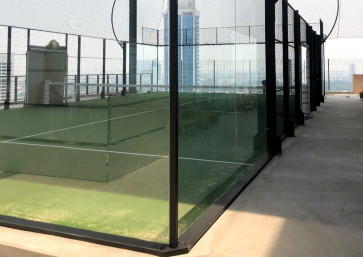Popular Reads
Top Results
Can't find what you're looking for?
View all search resultsPopular Reads
Top Results
Can't find what you're looking for?
View all search resultsGhost oath should have a place in law, say ulema
The Indonesian Ulema Council (MUI) in Probolinggo, East Java, has recommended the sumpah pocong oath be used as an alternative legal avenue to settle unresolved court cases
Change text size
Gift Premium Articles
to Anyone
T
he Indonesian Ulema Council (MUI) in Probolinggo, East Java, has recommended the sumpah pocong oath be used as an alternative legal avenue to settle unresolved court cases.
Sumpah pocong, or ghost oath, is often referred to as the ultimate oath. It involves a person being wrapped in white cloth — resembling a shroud that Muslims are buried in — and then swearing their innocence.
Therefore, sumpah pocong is considered the ultimate oath because one is said to risk death or chronic illness if they lie about their innocence while wearing the shroud.
Probolinggo MUI head Mochammad Hasan Sailful Islam said his office had made the proposal after police expressed difficulties in dealing with local cases, such as the practice of black magic or sorcery.
“We have discussed the topic with Nahdlatul Ulama clerics, Islamic boarding school caretakers and medical experts, especially on the practice of sorcery taking place in Probolinggo.
“One of the recommendations from the discussion is employing sumpah pocong as a last resort to resolve disputes among families of members in the community,” he told The Jakarta Post.
Hasan said the sumpah pocong was a legal alternative, or norm, among the community and was not contrary to Islamic sharia law because the oath was taken in the name of Allah, the Koran and was witnessed by Muslim clerics. “If the oath taker breaches the oath, he or she will face misfortune,” he said.
East Java’s MUI head Abdusshomad Buchori said sumpah pocong was practised by a large section of the traditional community, not only in Probolinggo, but also in other areas in Indonesia, and was carried out to minimize conflict within communities. “The oath is not against Islamic teachings because it includes a commitment not to act in a way that could harm others, especially when there is an agreement between members of a community and the authorities,” he said.
In mid November, hundreds of residents in Landengan hamlet, Kraksaan district in Probolinggo, set fire to a small mosque and the home of a resident accused of sorcery, which allegedly caused a villager, Matlawi Badri, to fall ill for two years.
Police could not name Mukri as a suspect due to inadequate evidence, but he was eventually driven out of the village. The case is still being processed and similar cases have occurred in other villages.
Probolinggo Police chief Adj. Sr. Comr. Al Afriandi said two other similar cases had taken place in different places. Based on police records, 26 similar cases have occurred over the past three years.
“Sorcery cases are hard to prove. Medical experts told us that Matlawi is suffering from diabetes, but villagers rejected the assumption and believe Matlawi’s ailment was caused by sorcery,” said Afriandi.
Afriandi added that according to medical experts, of the 26 sorcery cases, some of the victims were suffering from common illnesses, such as diabetes.
Despite medical evidence, a large part of the rural community still believe such illnesses are caused by sorcery. “We don’t wish the practice of sorcery to harm peace and threaten the investment climate in Probolinggo, so we invited related agencies to discuss the issue,” he said.
Afriandi said that besides the recommendation to implement the sumpah pocong, the discussion also suggested that clerics and relevant agencies conduct public awareness campaigns about sorcery.
“We have also urged the regency administration, through the education office, to raise educational standard in Probolinggo in an effort to encourage people to be more rational,” he said.










